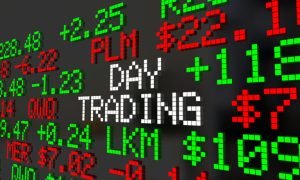Overvalued refers to a condition where the market price of a security, such as a stock, is higher than its intrinsic or fundamental value. When a security is considered overvalued, it is believed to be priced higher than what its financial performance, earnings, or future growth prospects would justify. This can occur due to excessive investor optimism, market speculation, or other factors that drive the price above its true worth.
Key Characteristics:
- Intrinsic Value vs. Market Price:
- Intrinsic Value: This is the true or fair value of a security, determined by analyzing its fundamentals, such as earnings, cash flow, growth prospects, and other financial metrics.
- Market Price: This is the price at which the security is currently trading on the market. A security is considered overvalued when its market price significantly exceeds its intrinsic value.
- Causes of Overvaluation:
- Investor Sentiment: High investor demand driven by hype, news, or speculation can push a stock’s price above its intrinsic value.
- Market Bubbles: In some cases, entire markets or sectors can become overvalued during speculative bubbles, where prices are driven by irrational exuberance rather than fundamentals.
- Earnings Expectations: Overvaluation can also occur when investors have overly optimistic expectations for a company’s future earnings or growth, leading them to bid up the stock price.
- Indicators of Overvaluation:
- Price-to-Earnings (P/E) Ratio: A high P/E ratio compared to historical averages or industry peers can be a sign that a stock is overvalued.
- Price-to-Book (P/B) Ratio: A higher-than-average P/B ratio may indicate that investors are paying more than the book value of the company’s assets, suggesting overvaluation.
- Discounted Cash Flow (DCF) Analysis: A DCF analysis can help determine the intrinsic value of a stock. If the market price is much higher than the value suggested by the DCF, the stock may be overvalued.
- Risks of Holding Overvalued Securities:
- Price Correction: Overvalued stocks are at risk of a price correction, where the market price declines to more closely align with the security’s intrinsic value. This can result in significant losses for investors holding overvalued securities.
- Lower Returns: Investing in overvalued stocks often leads to lower returns over the long term, as the price may stagnate or decline once the overvaluation is recognized by the broader market.
- Examples of Overvaluation:
- Dot-Com Bubble: During the late 1990s, many technology stocks were significantly overvalued as investors poured money into internet-based companies without regard for their actual earnings or business models. When the bubble burst, these stocks experienced dramatic price declines.
- Real Estate Bubble: The housing market in the mid-2000s became overvalued as home prices rose far beyond what was justified by income levels and rental yields. The eventual correction led to a widespread financial crisis.
- Investment Strategies:
- Avoiding Overvalued Stocks: Investors often use fundamental analysis to avoid buying overvalued stocks. They may focus on value investing, seeking out undervalued stocks with strong fundamentals.
- Short Selling: Some investors may engage in short selling, betting that the price of an overvalued stock will fall, allowing them to profit from the decline.
When a stock or other security is overvalued, it is trading at a price higher than its intrinsic value, often due to market speculation, investor sentiment, or unrealistic growth expectations. This condition presents significant risks to investors, including the potential for price corrections and lower returns, making it crucial to assess the true value of investments before purchasing.







